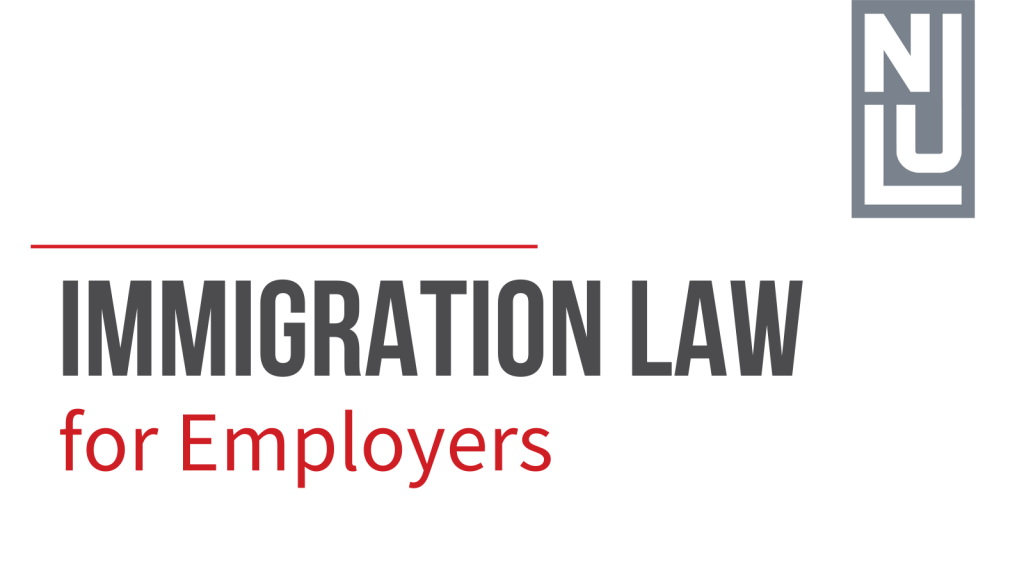
Posted January 26th, 2021 in Top Stories, Legal Insights with Tags Immigration, Corporate Immigration, Immigration Law
Not Biden His Time: Biden Administration Announces Intentions to Make Immigration Reform a Top Administrative Priority
Immediately after President Joe Biden took office, his administration unveiled a series of Executive Actions and legislative proposals designed to signal its top priorities. The actions taken within his first week include reversing Executive Orders issued by the Trump Administration, withdrawing certain pending regulations, delaying the implementation of regulations made by the Trump Administration post-election, and pushing forward a legislative overhaul of the current immigration system. These actions and proposals signal that modernizing the current immigration system will be one of the top priorities of the new administration. We have provided below a summary of some of the major actions taken this past week.
Executive Actions
On his first day in office, President Biden signed 17 executive orders, memoranda, and proclamations designed to reverse several Trump Administration policies. Changes to immigration policies and priorities were prominently featured among these actions. Such actions targeted some of the more draconian measures taken by the Trump Administration to curtail immigration into the United States in the refugee, family-based, and employment-based spheres.
We note, however, that the Biden Administration has yet to rescind the restrictions imposed by the Trump Administration regarding the issuance of temporary work visas by US Embassies and Consulates or any of the restrictions banning entry into the United States from certain regions of the world. In fact, the Biden Administration recently announced that it will not only extend the regional-based restrictions on entry but will also add South Africa to the list of countries whose citizens face travel restrictions, on advice from the administration’s medical and COVID team and in light of the contagious variant, B1351.
Reversal of Trump Era Executive Orders
As part of the Executive Orders issued by the administration, President Biden targeted some of the signature immigration policies issued by former President Trump. These Executive Orders included:
- Strengthening the Deferred Action for Childhood Arrivals (“DACA”) program so as to protect immigrants brought to the United States as children from deportation.
- Reversing the Trump Administration’s plan to only include citizens of the United States in the census count.
- Halting the aggressive efforts of the Trump Administration to target and remove unauthorized immigrants from the United States.
- Blocking the deportation of Liberians who have been living in the United States under Temporary Protected Status.
- Ending the “Muslim Ban” prohibiting travel to the United States from several countries with majority-Muslim populations. Within this order, President Biden also directed the Department of State to begin processing visas from individuals from these countries and develop harm reduction strategies to help those affected by the ban.
- Terminating the national emergency to direct funding and ended the construction of the border wall with Mexico. Within the order, President Biden also instructed his administration to review the legality of former President Trump’s decision to divert federal funding to the wall’s construction.
Rescinding Proposed Rules Not Yet Published
Additionally, on the first day in office, President Biden also directed the Department of Labor to withdraw certain pending regulations that had been submitted for notice and comment for publication. As part of its withdrawal, the Department of Labor will further review the process for issuing the interpretation and has stated that it will make further announcements pending its review.
Notably, the Department of Labor has withdrawn a regulation that would have revised the interpretation of its regulations governing the employers required to file a Labor Condition Application. This regulation would have required secondary employers and common law employers (the employer for which the employment services are performed) to provide notice to its employees about positions filled by H-1B workers.
Postponing New Rules Published in the Federal Register
In its final two months in office, the Trump Administration published several new rules in the Federal Register that were scheduled to take into effect during the first few months of the Biden Administration. Included within these actions, the Department of Labor published a rule which would significantly raise the prevailing wages. These wages would likely have several impacts on both employer sponsorship of both H-1B petitions and permanent residence sponsorship. The wages are scheduled to take effect on March 15, 2021, and would be phased in between July 1, 2021, and July 1, 2024. Additionally, a final rule which would have ended the H-1B lottery and allowed USCIS to only select the applications with the highest stated salary. Many experts have stated that this rule would have significantly impacted employers’ ability to hire international students graduating from United States universities.
On his first day in office, President Biden’s Office directed the executive agencies to consider positing the rules’ effective dates for sixty days to review all issues of fact, laws, and policies regarding the new rules. Further, the Biden Administration also directed the executive agencies to open up further notice and comment periods if required and allowed the agencies to further delay the implementation of the rules or take further action where necessary. The Biden Administration has also frozen for 60 days the implementation of the new prevailing wage and H-1B lottery rules and it is anticipated that the administration will push to rescind the rules after the 60-day freeze. We also note that both the H-1B registration and the prevailing wage rules will likely be subject to litigation.
Department of Homeland Security
Lastly, as part of the first day, the Department of Homeland Security implemented a 100-day moratorium on most deportations, with the exception of a few narrow categories. During the moratorium, the Biden Administration plans to review its immigration enforcement policies and make recommendations for new priorities. This moratorium is already the subject of litigation filed by the State of Texas. Additionally, the Department of Homeland Security also announced that it would also suspend new enrollments in the controversial “Remain in Mexico” program for new asylum seekers.
Legislative Proposals
In addition to the immediate action taken through executive action and policy memorandums, President Biden also threw his support behind the U.S. Citizenship Act of 2021. This legislation is designed to modernize the immigration system. Among the changes proposed in this legislation include:
- Clearing employment-based backlogs, recapturing unused visas, and eliminating per-country visa caps. The proposed bill would also make it easier for graduates of US universities with advanced STEM degrees to stay in the United States and eliminates certain hurdles for employment-based green cards.
- Providing dependents of H-1B visa holders with work authorization and prevents children from “aging out” of the system.
- Granting the Department of Homeland Security the authority to adjust green cards based on economic conditions and incentivizing higher wages for non-immigrant, high-skilled visas.
- Establishing a commission to improve the employment verification process, with further emphasis on protecting workers from deportation who are victims of workplace retaliation.
- Providing undocumented individuals to apply for temporary legal status, with pathways to permanent residence. DACA holders, those with Temporary Protected Status, and immigrant farmworkers would be eligible for immediate permanent residence.
- Reforming the family-based immigration system to clear backlogs, eliminate wait times and per-country caps, and eliminating certain bars to entry for those with family members in the United States.
- Increasing the number of available Diversity Visa and prohibiting religious discrimination in restricting entry.
- Increasing funding for state and local governments to provide further support for new immigrants.
Conclusion
The summary of the items above does not constitute a complete list of the actions taken by the Biden Administration. Further, we expect that there will be several more changes within the next few weeks and months. We will be sure to provide further information as soon as these changes are announced and implemented. If you have any questions, do not hesitate to reach out to the Nilan Johnson Lewis Corporate Immigration Team.

